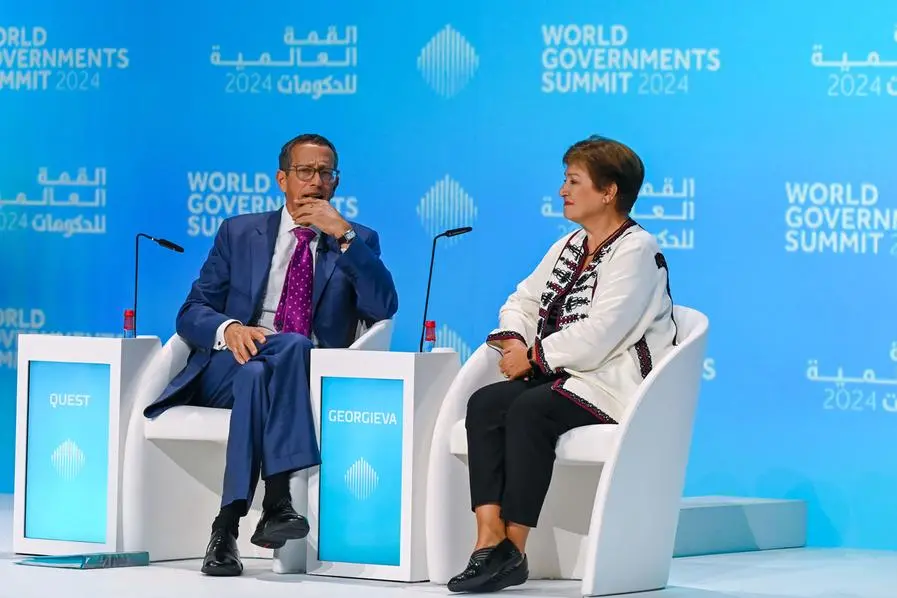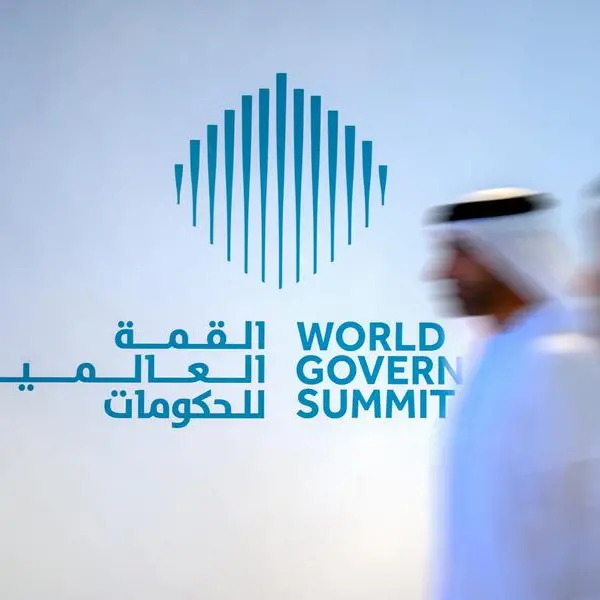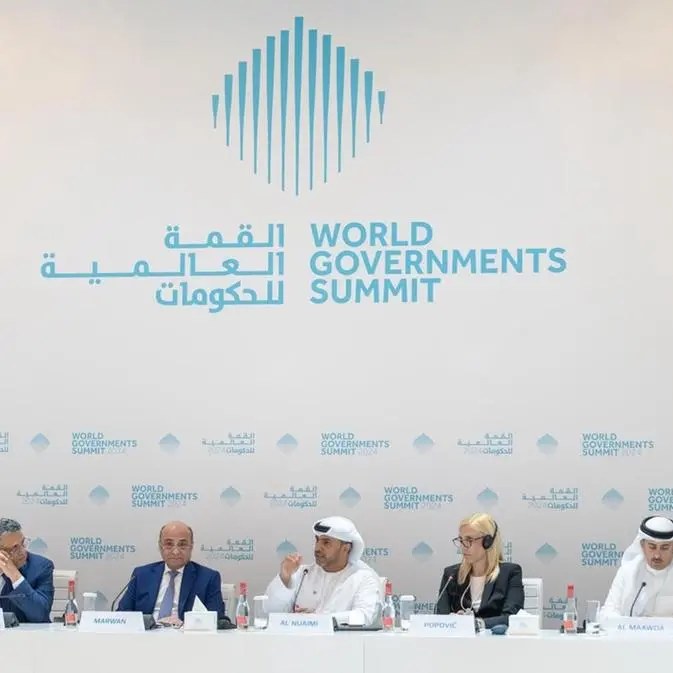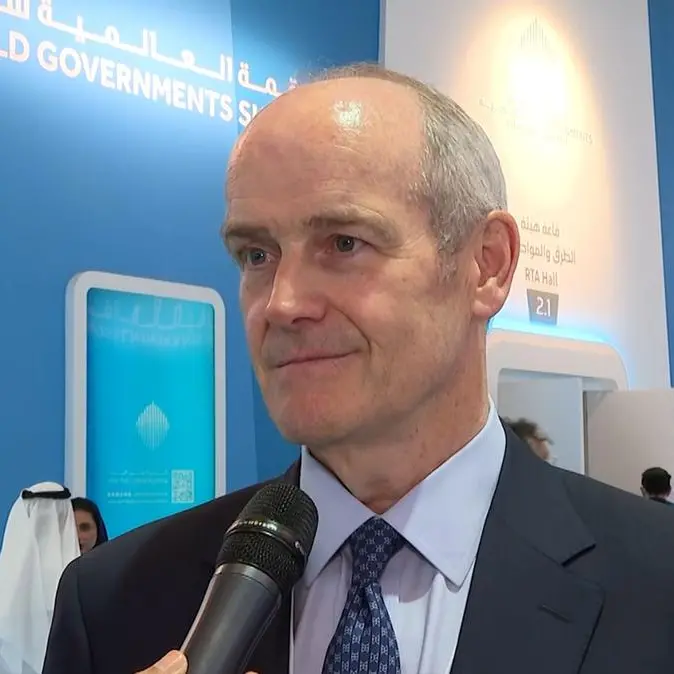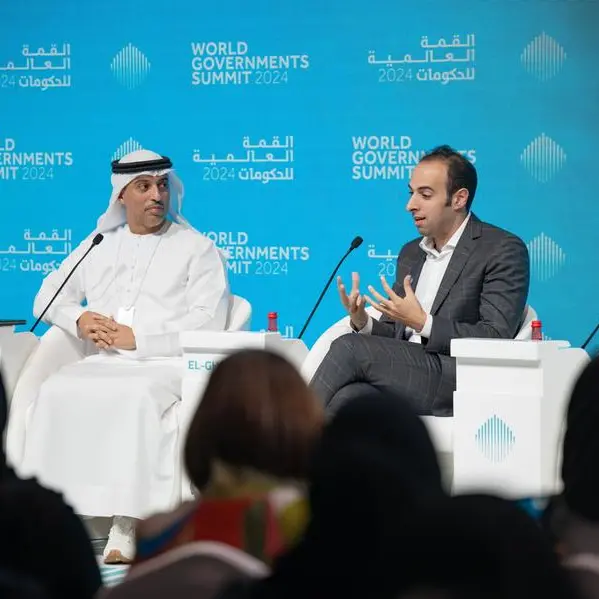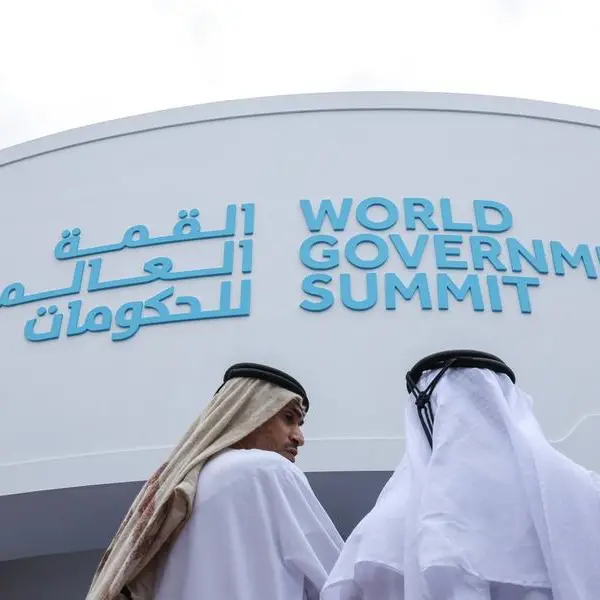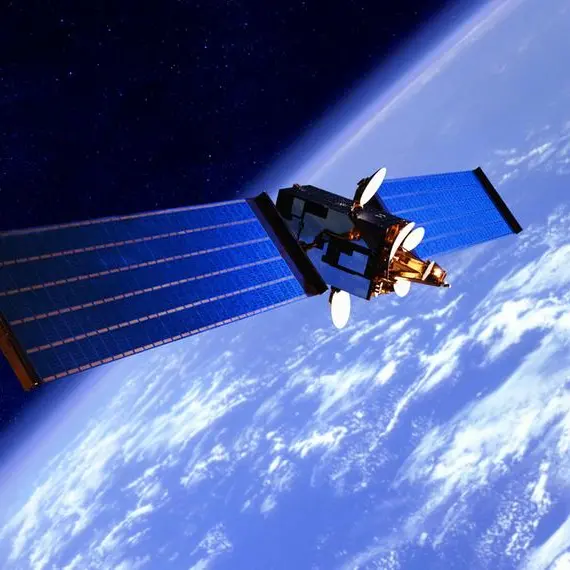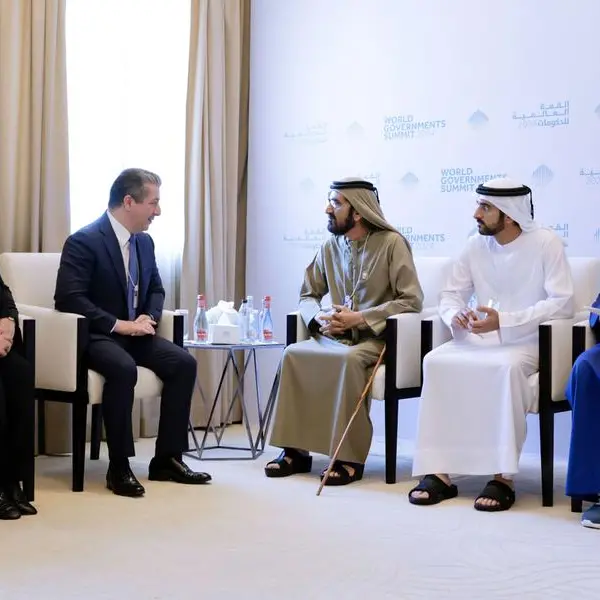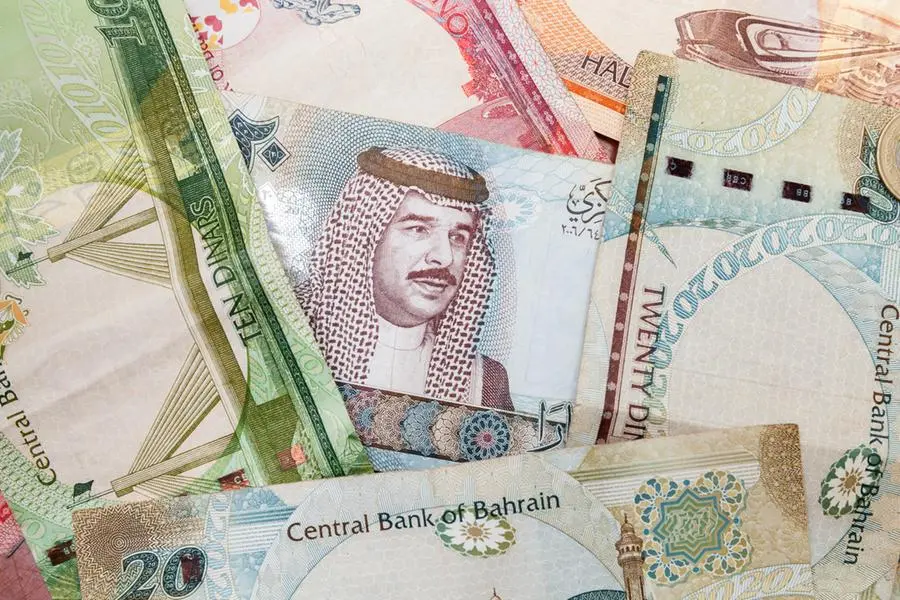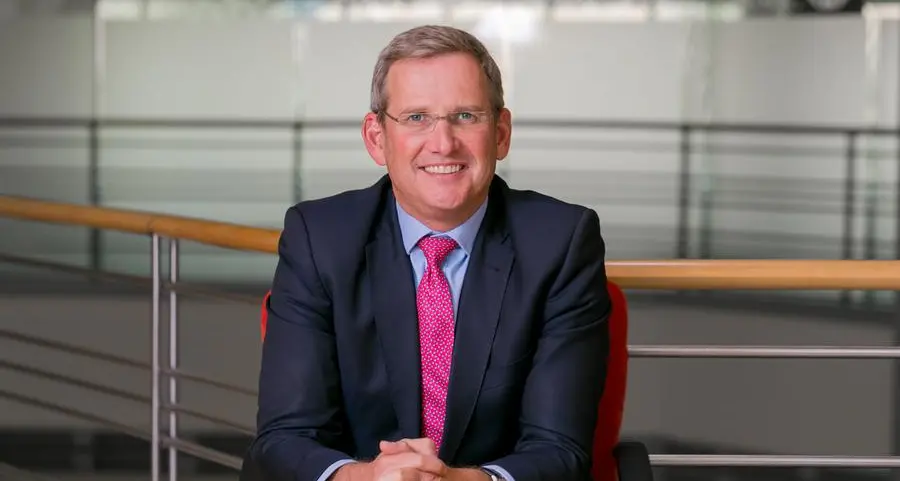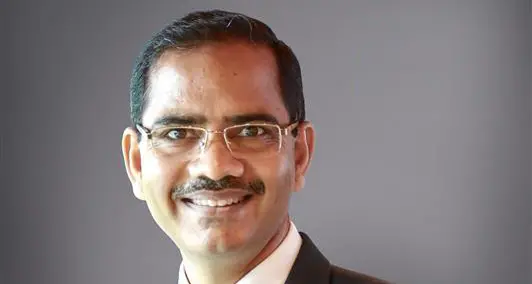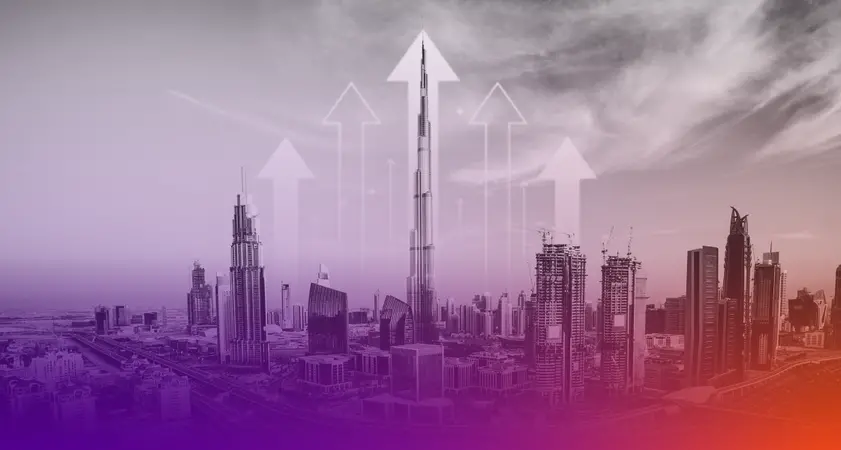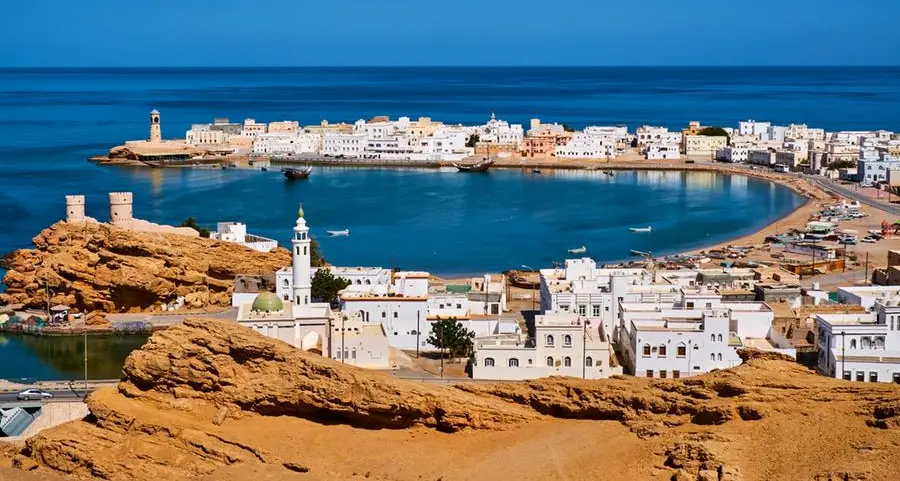PHOTO
DUBAI: On its first day, the World Governments Summit 2024 (WGS) hosted a plenary session featuring Kristalina Georgieva, Managing Director of the International Monetary Fund (IMF).
The session was attended by His Highness Sheikh Mohammed bin Hamad bin Mohammed Al Sharqi, Crown Prince of Fujairah; His Highness Sheikh Maktoum bin Mohammed bin Rashid Al Maktoum, First Deputy Ruler of Dubai, and Deputy Prime Minister and Minister of Finance of the UAE; Sheikh Mohammed bin Abdulrahman bin Jassim Al Thani, Prime Minister and Foreign Minister of Qatar; His Highness Lieutenant General Sheikh Saif bin Zayed Al Nahyan, Deputy Prime Minister and Minister of the Interior; His Excellency Sheikh Nahyan bin Mubarak Al Nahyan, Minister of Tolerance and Coexistence; and His Excellency Mohammad bin Abdullah Al Gergawi, Minister of Cabinet Affairs, and Chairman of the World Governments Summit.
During the session, which was moderated by CNN’s Richard Quest, Georgieva praised the UAE’s readiness to use artificial intelligence (AI) technologies and commended the nation for its foresight to establish a ministry for artificial intelligence in 2017 at a time of global reluctance on this matter.
Georgieva said: “The shift towards AI will be similar to the Industrial Revolution in terms of scale and significance of impact.” She highlighted that it will affect up to 40% of the labour market, with new jobs emerging as existing jobs either transform or disappear.
Georgieva stated that an IMF report has revealed the readiness of the UAE and Saudi Arabia for this transformation, while “the majority of countries, primarily developing nations, are not.”
“The UAE must now lead the world in the responsible, humanity-serving adoption of AI,” Georgieva stated, while also supporting other countries by investing in developing nations and emerging markets. The aim, she elaborated, is to support them in benefitting from this technology, but also “managing its negative potential consequences.”
Four criteria for AI readiness
Georgieva highlighted that AI readiness can be evaluated across four criteria. The first is the provision of digital infrastructure, while the second focuses on the standard of skills and labour market mobility. The third criterion is innovation, which focuses on the extent of a country’s investment in research and development. The fourth criterion to evaluate regulation and ethics.
Georgieva conveyed her enthusiasm for AI, although accompanied with a few concerns. “It is important to remember what the world witnessed during the COVID-19 pandemic,” Georgieva stated, stressing the need to “expect the unexpected”, stay carefully attuned to global events and changes, and “have the agility to respond and never be caught unprepared.”
Georgieva also noted that global interest rates are expected to decline by 40% by mid 2024. “We are very confident that the world economy is now poised for this soft landing that we have been waiting for,” she said.
Georgieva added: “We have learned through experience that economic fundamentals matter, and in the United States they are strong. The US has deep capital markets; a very dynamic economy, particularly in new technologies; and the ability of its economy to quickly adjust, which is attractive for investments.”
Responding to a question on why the United States has responded so strongly at a time of high interest rates, Georigieva stated: "The United States benefits from being a source of energy in terms of oil and gas. When the war on Ukraine began, for instance, Europe found itself in a difficult place because it was forced to move away from Russia. The United States did not face this problem at all. It became an exporter of energy.”
She also cited the American government's support for families and businesses during the pandemic. In doing so, the government ensured that citizens were still able to spend, which kept the demand level and the labour market thriving.
The WGS 2024 is being in Dubai until 14 February under the theme of ‘Shaping Future Governments’. The three-day mega-event features more than 25 heads of state, over 85 international and regional organisations and global institutions, 140 governments, and distinguished global thought leaders and experts.
Over 200 prominent speakers will address future global trends during more than 110 dialogues and sessions. WGS 2024 will host more than 4000 attendees, as well as more than 23 ministerial meetings and executive sessions attended by more than 300 ministers.
